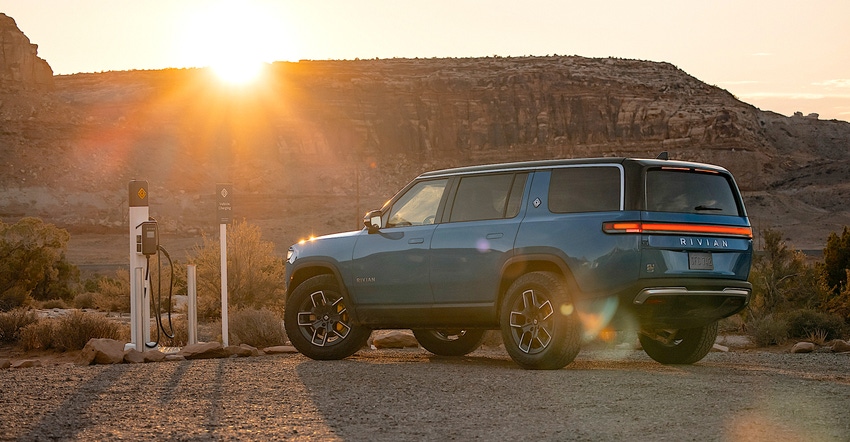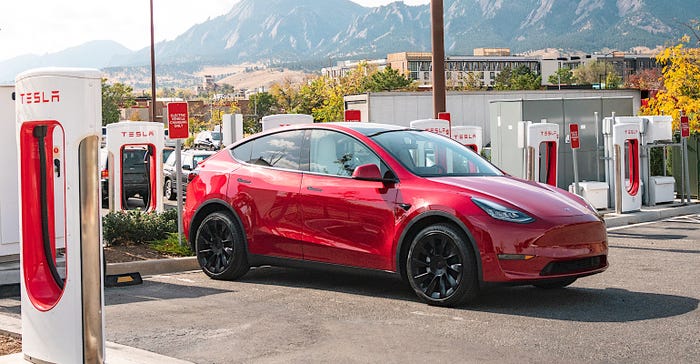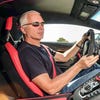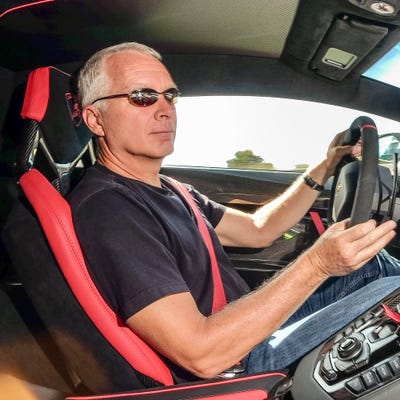Tesla NACS Charging Gains Support
With Rivian on board supporting Tesla’s charging standard even the Charging Interface Initiative group is supporting NACS.

The industrywide shift from the cumbersome SAE Combination Charging Standard EV plug and the frequently troublesome public fast-charging networks that employ it to Tesla’s compact charging plug, dubbed the North American Charging Standard, and that company’s fast and reliable Supercharger network of charging stations is accelerating, as Rivian is the most recent company announcing plans to shift to Tesla’s charging system.
“Today we signed an agreement with @Tesla to adopt the North American Charging Standard,” Rivian announced via Twitter. “This opens charging for Rivian vehicles on Tesla's Supercharger network across the United States and Canada. Access starts as soon as Spring 2024.”
“This is big news,” declared Sandy Munro, founder of Munro & Associates in a video response that he posted to Twitter. “First: Ford. Then GM. A whole bunch of Germans are contemplating this. And now Rivian. This is good news for the electric community.”
According to Reuters, Hyundai president Jaehoon Chang told analysts during the company’s investor day that Hyundai is considering a switch to Tesla’s NACS standard, but that it considering its customers’ concerns. This is because, despite its many shortcomings, the existing networks of public DC fast chargers do include stations that are theoretically capable of charging at a 350-kilowatt rate, which is faster than Tesla’s 250-kW maximum.
Drivers who have regularly used the 350-kW chargers know from experience that they rarely achieve this rate, so this difference in peak charging rates is probably not the obstacle it appears to be when considering theoretical capabilities.
The Charging Interface Initiative (CharIN) has also tentatively backed the idea of supporting Tesla’s NACS charging specification, but the group’s chairman of the board in the U.S., Oleg Logvinov, remains insistent that Tesla’s NACS and the SAE CCS will co-exist in competition with each other.
“CCS isn’t going anywhere,” Logvinov declared in an interview with Design News. The charging standard encompasses more than just the physical shape of the charging plug and the location of the charging pins within it, he pointed out. It also includes the communication protocol between the charging station and the vehicle, which has to be satisfactorily tested for safety and security, he said.
Ford/Tesla Supercharger Announcement Ignites EV Charging Standard War
The announcements from Ford, GM, and so far, Rivian, involve the use of adapters for vehicles equipped with CCS ports starting next year, with the production of new vehicles including the NACS port starting in three years. “In the next two or three years we’re going to sell a lot of CCS vehicles,” he pointed out.
With EV sales growing quickly, those years’ production will represent a large number of vehicles with CCS ports. However, we’ve seen how Apple moved on from its 32-pin iPod port on its iPhone despite a huge installed base and millions of American households had Sony Beta VCRs when video rental stores discontinued their support for Sony’s technically superior videotape specification in favor of the VHS format.

The question for a charging standard is what qualifies as a standard. If industrywide (or nearly so) adoption establishes a de facto standard, isn’t that a standard?
Is National Park EV Charging Ready for Summer?
Not for Logvinov, who insists that standards must be agreed to by committees of stakeholders, as happened when the CCS standard was established. However, describing something as looking like it was designed by a committee is not generally complementary, and if the NACS specification is adopted by carmakers and public charging networks, does it matter whether it has been vetted in numerous meetings?
“Customers and the EV industry need trustworthy open charging standards to ensure confidence in the availability, reliability, safety, and adaptability of the standard over time,” said the CharIN announcement regarding the growing support for NACS. “NACS should be submitted to standards bodies to unify the charging standards market in North America.”
Whether that is a necessary step remains to be determined, but with each announcement of support by additional automakers, it seems as if the industry has decided.
About the Author(s)
You May Also Like


.jpg?width=300&auto=webp&quality=80&disable=upscale)


